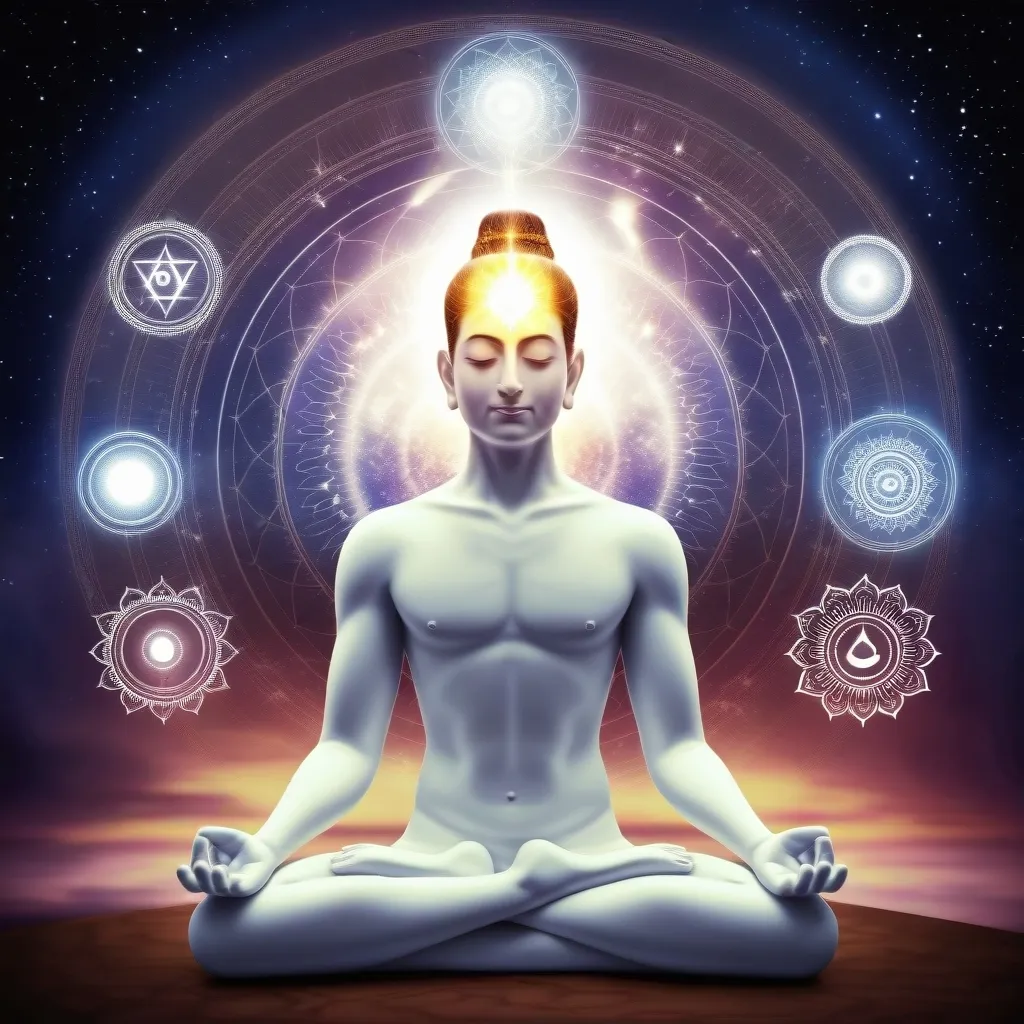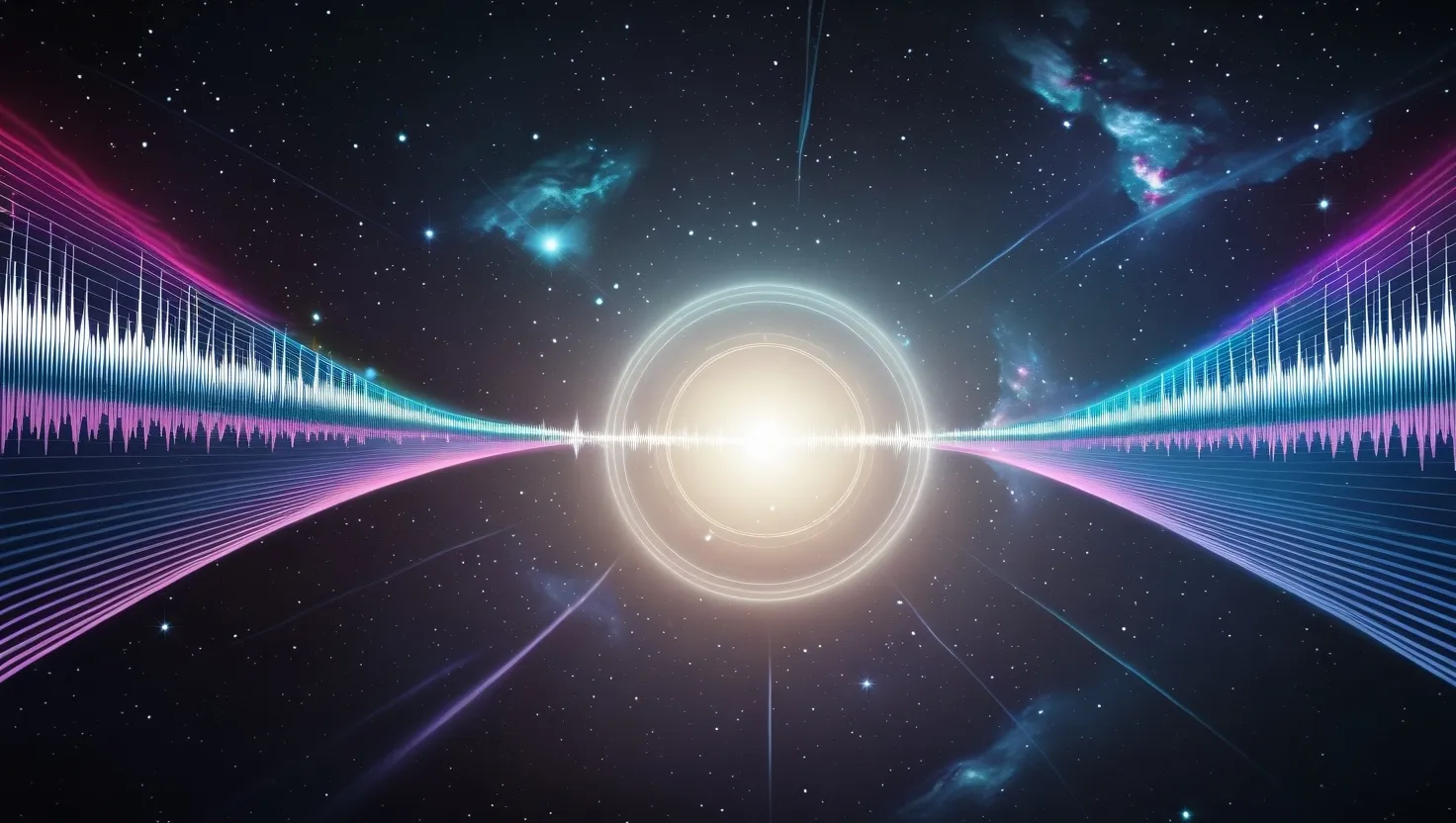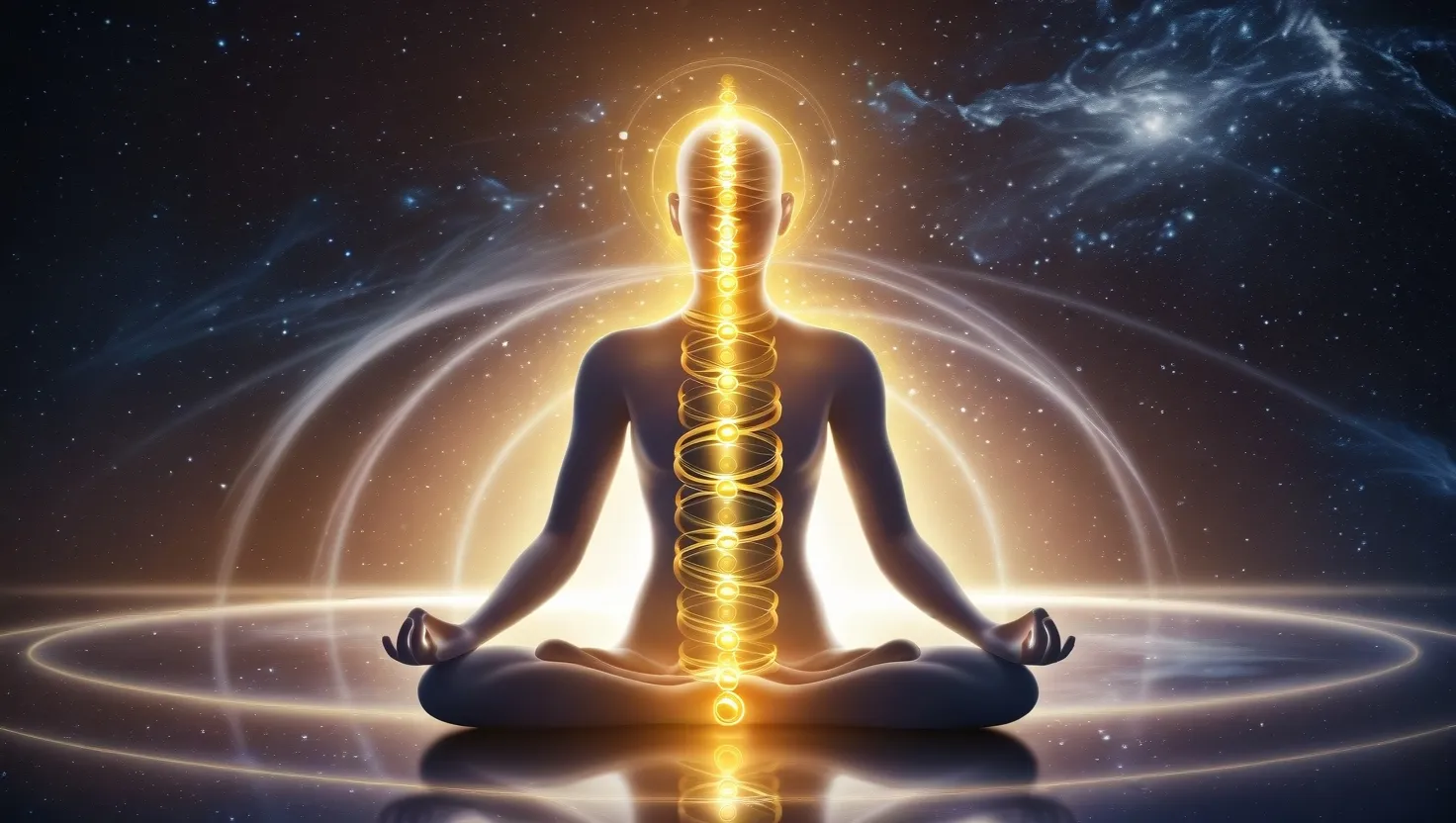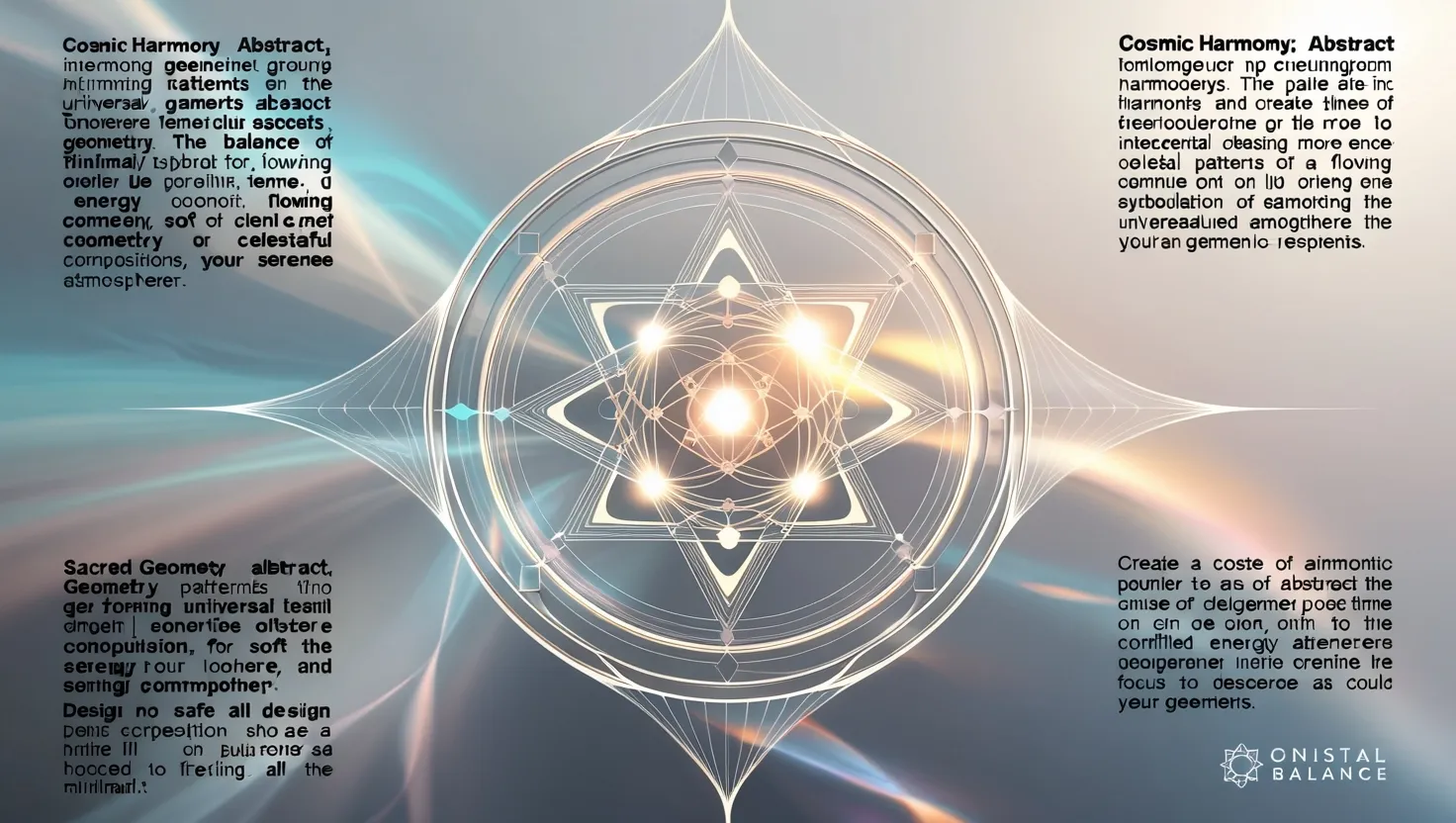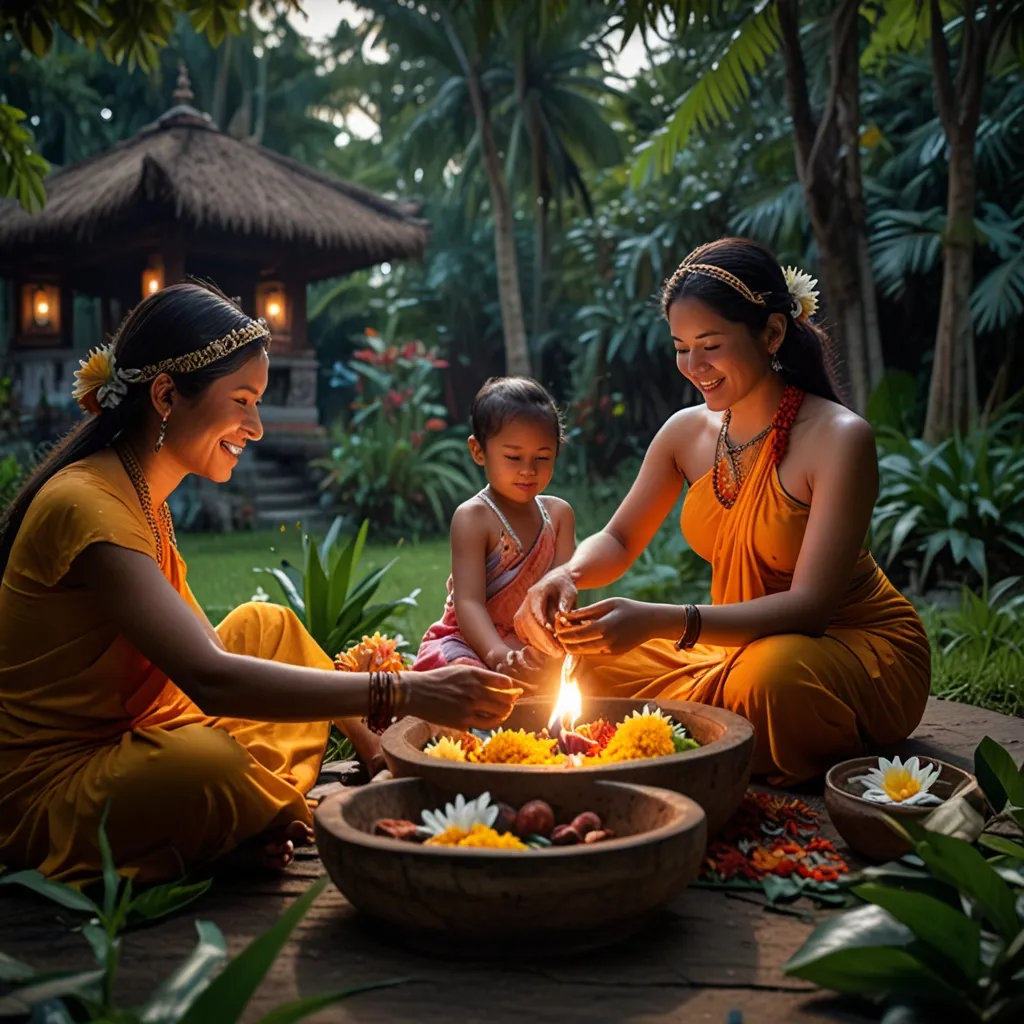The Third Eye: Unlocking the Gateway to Higher Consciousness in Hinduism
Ever wondered about that mysterious dot between the eyebrows on Hindu deities? That’s the third eye, and it’s way more than just body art. It’s like a spiritual superpower, a cosmic USB port that connects us to the universe. Let’s dive into this fascinating concept and see what it’s all about.
So, picture this: you’ve got your regular two eyes, right? Now imagine a third one, smack dab in the middle of your forehead. But here’s the kicker - it’s not a physical eye. It’s more like a spiritual peephole that lets you see beyond the physical world. Cool, huh?
In Hinduism, this third eye is a big deal. It’s not just some new-age mumbo jumbo; we’re talking ancient wisdom here. The big man himself, Lord Shiva, is often called the “three-eyed lord.” And trust me, when Shiva’s involved, you know it’s serious business.
But what’s the point of this extra eye? Well, it’s like having a built-in BS detector. It’s supposed to help you see through the illusions of the world and tap into some seriously deep knowledge. It’s like having Google, but for the cosmos.
Now, don’t go trying to pry open your forehead or anything. This eye is more of an energy center, what the yogis call a chakra. It’s the ajna chakra, to be precise. When this bad boy gets activated, it’s said to give you some pretty wild abilities. We’re talking seeing the future, reading auras, even having out-of-body experiences. It’s like becoming a spiritual superhero.
But hold up, it’s not just Shiva who’s rocking the third eye look. Pretty much all the major Hindu gods and goddesses are sporting this cosmic accessory. It’s like the divine equivalent of a designer label - if you’ve got it, you’re part of the enlightened club.
Now, you might be thinking, “This all sounds great, but is it just some ancient myth?” Nope, this concept is alive and kicking in modern Hinduism. There are actual techniques people use to try and awaken their third eye. It’s not just about slapping on a bindi and calling it a day.
In fact, there are some pretty intense practices involved. Meditation, yoga, special breathing techniques - it’s a whole spiritual workout regime. And it’s not just Hinduism that’s into this. Taoists have their own methods, focusing on that spot between the eyebrows while doing their qigong thing.
But here’s the catch - awakening the third eye isn’t a walk in the park. It’s more like climbing Mount Everest… blindfolded… while juggling. People talk about facing their deepest fears, battling negative thoughts, and dealing with some seriously intense emotions. It’s not for the faint of heart.
And let’s not forget the gurus. In Hinduism, having a spiritual teacher is a big deal when it comes to this third eye business. They’re like the personal trainers of the spiritual world, guiding you through the process. Some even believe that the guru is Shiva in human form. Talk about high expectations!
Now, if you’re into the more philosophical side of things, the third eye concept gets even juicier. It ties into some heavy-duty Hindu ideas about the nature of reality. We’re talking about Brahman (the ultimate reality) and Atman (the individual self). The third eye is like the key to understanding how these two are actually one and the same. Mind-bending stuff, right?
But it’s not all ancient history and philosophy. Some modern folks are trying to link the third eye to actual brain science. There’s this tiny gland in your brain called the pineal gland, and some people think it might be the physical equivalent of the third eye. It’s involved in regulating sleep patterns and might even produce some trippy chemicals associated with spiritual experiences. The plot thickens!
Now, I know what you’re thinking. “This all sounds great, but how do I know if my third eye is working?” Well, apparently, it’s not like flipping a switch. People who’ve experienced it describe it as a gradual process. You might start noticing things you never did before, feeling more intuitive, or having some pretty wild dreams.
But here’s a word of caution - don’t expect to suddenly start shooting laser beams from your forehead or predicting lottery numbers. The third eye is more about inner wisdom and spiritual growth than superhero powers.
And let’s be real, it’s not all sunshine and rainbows. Some folks report feeling overwhelmed or even scared when they start exploring this stuff. It’s like opening Pandora’s box - you never know what you might find inside yourself.
So, what’s the bottom line? The third eye concept in Hinduism is this incredible blend of ancient wisdom, spiritual practice, and personal transformation. It’s about seeing beyond the surface, tapping into a deeper reality, and maybe even discovering some hidden truths about yourself and the universe.
Whether you’re a die-hard believer or just curious about different spiritual traditions, the idea of the third eye offers a fascinating perspective on consciousness and reality. It’s like a cosmic adventure, right there in your own mind.
So, next time you see a statue of a Hindu deity with that extra eye, or someone wearing a bindi, remember - there’s a whole universe of meaning behind that little dot. It’s not just decoration; it’s an invitation to explore the depths of consciousness and maybe, just maybe, unlock some of the universe’s biggest secrets.
In the end, whether you believe in the third eye or not, the concept reminds us that there’s always more to see and understand than what meets the eye. And isn’t that what makes life so darn interesting?
